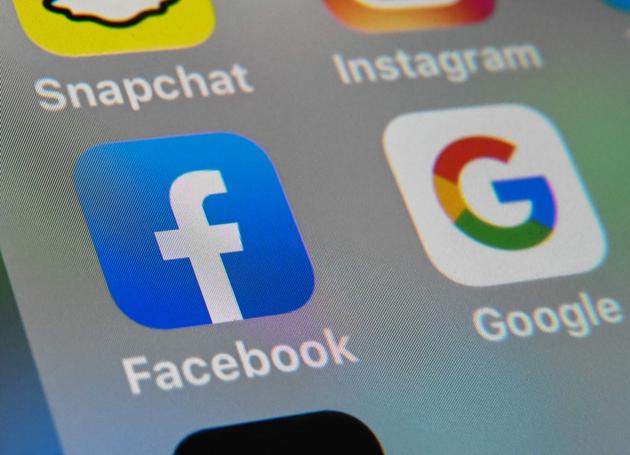India should enforce media regulation on big tech
Facebook and Google have reaped the benefits of being publishers without being responsible
Are leading Internet firms such as Facebook, Twitter and Google, as operators of social media platforms, publishers of editorialised content (much like the Hindustan Times is), or are they indiscriminate platforms that offer open access to anything that you might wish to see?

The debate sounds nerdy at first — a sort of philosophical enquiry that should only concern professors and legal scholars as a matter of business regulation. But this seemingly narrow intellectual question is increasingly becoming a central matter of urgent concern in the context of Indian democracy — and, indeed, democracy and the free flow of information around the world. Foreign governments are moving to impose new responsibilities on dominant tech firms. Australia, for instance, is forcing Facebook and Google to pay news companies for displaying their stories; French antitrust officials have ordered Google to negotiate with local media firms to pay for displaying their content; and in the United States, a fierce political war rages on between liberals and conservatives on this very issue.
Let’s go back to that philosophical question for a moment, though. Publishers have always held a vaunted position in society. Traditional media formats — daily newspapers, broadcast television networks and radio stations — once consumed the public’s attention. My grandfather would comb through newspapers and news magazines every day, while my grandmother listened to the radio all day, every day — not uncommon for those of their generation. The result was that we came to know not only the voices and faces that graced these outlets, but the publishing houses and media personalities behind the businesses. This intense aura about the media ecosystem — a world that could make someone famous — gave news organisations great power. They had the power to convey the news — and with that power, came great responsibility.
As with any line of business, news organisations cannot be expected to necessarily and voluntarily demonstrate that responsibility — by, for instance, not spreading political falsehoods, hateful messaging, and other vitriol. To put it differently: Absent meaningful regulation, businesses operating in a free market economy, including media outlets, will do whatever they wish to maximise shareholder returns. Profit displaces social considerations.
So to ensure they would act responsibly, the government created a policy framework.
In India, the contours of media regulation have become sophisticatedly diverse, with laws such as the Press Council Act, 1978, the Drugs and Magic Remedies (Objectionable Advertisements) Act, 1954, the Newspaper (Price and Page) Act, 1956, and the Cinematograph Act, 1952.
To quote from an example, the last of these — a reform of the Indian film industry enacted 70 years ago — notes that a “film shall not be certified for public exhibition if, in the opinion of the authority competent to grant the certificate, the film or any part of it is against the interests of 1 (the sovereignty and integrity of India) the security of the State, friendly relations with foreign States, public order, decency or morality, or involves defamation or contempt of court or is likely to incite the commission of any offence.” Without the law, the government couldn’t be sure that an intrepid director might just slip offending content into mass-market films every now and then.
Some might argue that Facebook and Google should be treated like publishers, too; they now dominate the media sector in India and often facilitate the dissemination of offending content. They have, until now, been regarded as open platforms, which allow any and all speech (different kinds of views/all shades of opinion) but can remove whatever they wish — a conceptualisation originally stemming from Section 230 of the Communications Decency Act, a 1996 US law that simultaneously affirms that Internet companies won’t “be treated as the publisher or speaker of any information” and won’t “be held liable on account of any action voluntarily taken in good faith to restrict access to or availability of material”. The idea was simple: Let the Internet grow and develop its own commercial standards as necessary.
Here is the problem. This benevolent regulatory framework has enabled Facebook to claim it acts as a publisher and reap the censorship rights thereof, but turn around and also claim it is an undiscerning platform to reap the benefits of free speech leniency. A more just regime might, instead of giving the firm a free pass on both ends, hold its feet to the fire on both counts. There can be no doubt the company acts as some novel form of entity in between; even the company’s lawyers have suggested that the company possesses a “quintessential publisher function” over the “protected” practice of determining “what to publish and the decision of what not to publish” — while Facebook CEO Mark Zuckerberg has also contended the company “should err on the side of greater expression.”
So, if it is true that Internet firms have editorial power — and it is, so long as they decide what specific news stories, search results, and social media posts to show us among the billions of possibilities — then let us treat them as such. The responsibility must now lie with the national government to do right by its citizens — many of whom have been targeted, misled, and pilloried, which has been enabled by Internet platforms. The time has come for the imposition of decency in exchange for continued participation in the Indian consumer market.



